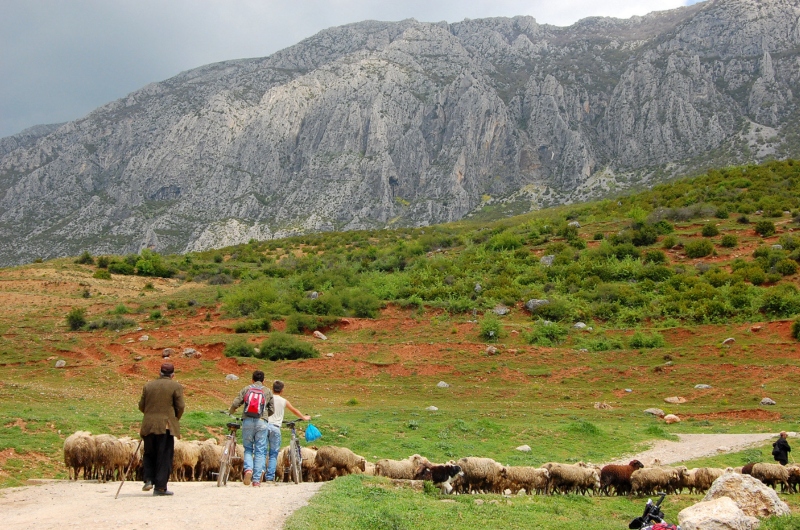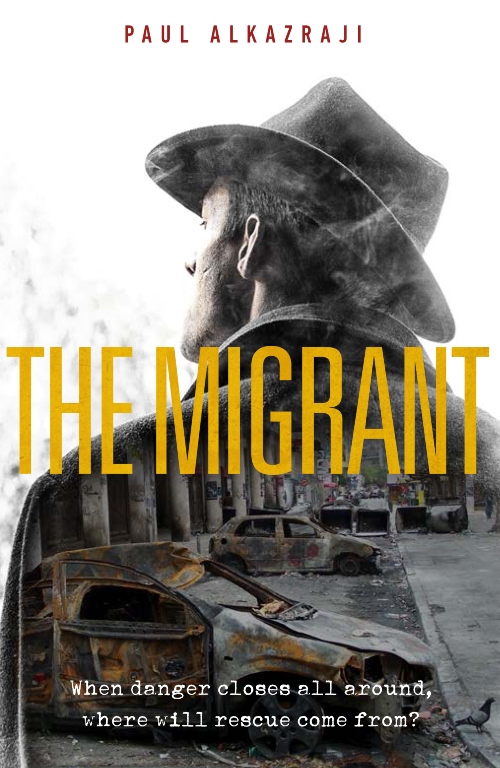'Albanians have been leaving their country for decades'
As a British pastor in Albania, Paul Alkazraji has heard many migration stories. In the light of a rise in the numbers of Albanians crossing the Channel this year, he offers this reflection

As I viewed the modern glass towers and the bare-bricked communist era apartments of the Albanian town where I live this summer, my son showed me a TikTok advert popping up on his phone. It was for dinghy crossings to England over the Channel for £5500.
'You’ve already got your air ticket,' I joked, 'and it cost a lot less.'
Inside, though, I was surprised at the brazenness of it, and concerned that people smuggling adverts had reached my fourteen-year-old.
Since then, the figures of how many young Albanian men have been crossing the English Channel in small boats have become clearer: around 10,000 so far this year, with another 2000 Albanian women and children (up from 50 in 2020). As Albanian middlemen have got involved along the coast of northern France, they have been recruiting back home with some apparent success.
The majority of those Albanians risking the choppy waters will be economic migrants seeking a way to a better life. Some may have been trafficked for the sex industry. Some will game the system for asylum. Some will try to disappear and work illegally before returning home to Albania later with their earnings. Some may become debt bonded to the drugs gangs, if they let them pay the cross-Channel passage for them.
Albanians have been leaving their country for decades. There was a time under Enver Hoxha when rivers were electrified, those seen escaping were shot, and you could be sent to internment for saying the cheese was better in Greece. Later when communism crumbled, Albanians packed onto cargo ships from Durres, trekked through the mountain passes into Greece, and hid in secret compartments in the back of freight lorries to get out. These days they are not fleeing violent persecution, oppression or war, but rural poverty, unemployment, low wages, poor working conditions and corruption.
In the Albanian village where I pastor a church, I have heard many migration stories first hand. One time, a young man gave me his mobile phone the night before he left. I asked myself, why? Was it because he didn’t need it anymore, and intending to buy a new one in his destination country?
Then I realised it was a kind of token for his safe keeping. 'Don’t forget me. Keep an eye out for me…' he was saying. A young single mother once told me how she had waded a border river illegally at night to reach a job to bring money back home for her son. I was moved by her physical courage.
In this fallen world, there are so many people seeking a better life, a place of peace where they can build a livable existence and prosper. As the push factors mount up – wars, the increasing frequency and intensity of natural disasters, crop failures, food scarcity, cost of living crises - so will the number of people seeking to enter those places that presently have some stability.
Christians know how the story will end. There will come a time when ‘nations will not raise their swords against other nations, nor will they train for war any more’, and when ‘swords are made into ploughshares and each person can sit under his own fig tree in peace and enjoy the fruit of his vine’. Until then, the authorities will need the wisdom of Solomon to filter out and exclude those individuals who would bring additional destruction and pain to the community, and in compassion give refuge too to the traumatised and vulnerable.
The Albanian Prime Minister, Edi Rama, says the present climate is ‘fuelling xenophobia by singling out one community’. It is true to say that Albanians in the UK are feeling the cold wind of hostility blowing in their direction at the moment. Three times it’s been said to me that 65 per cent of UK inmates are Albanian when the figure is nearer 2 per cent. Someone must be spreading that.
There are more than half a dozen flights every day from Tirana to the UK bringing Albanians in and out legally as they work, study and visit their relatives. My son deleted the people smuggling adverts and we hopped on the plane with them too.
Image | Albanians head for the mountains | Peter Wilson
 Paul Alkazraji is a British writer and the author of a novel called The Migrant, which is published by Instant Apostle. He was a freelance journalist in the UK until 2003, and from 2004 to 2010 editor and publisher of a magazine for churches in Albania.
Paul Alkazraji is a British writer and the author of a novel called The Migrant, which is published by Instant Apostle. He was a freelance journalist in the UK until 2003, and from 2004 to 2010 editor and publisher of a magazine for churches in Albania.
He has been pastor of a village church there since 2014
Do you have a view? Share your thoughts via our letters' page.
Baptist Times, 23/11/2022